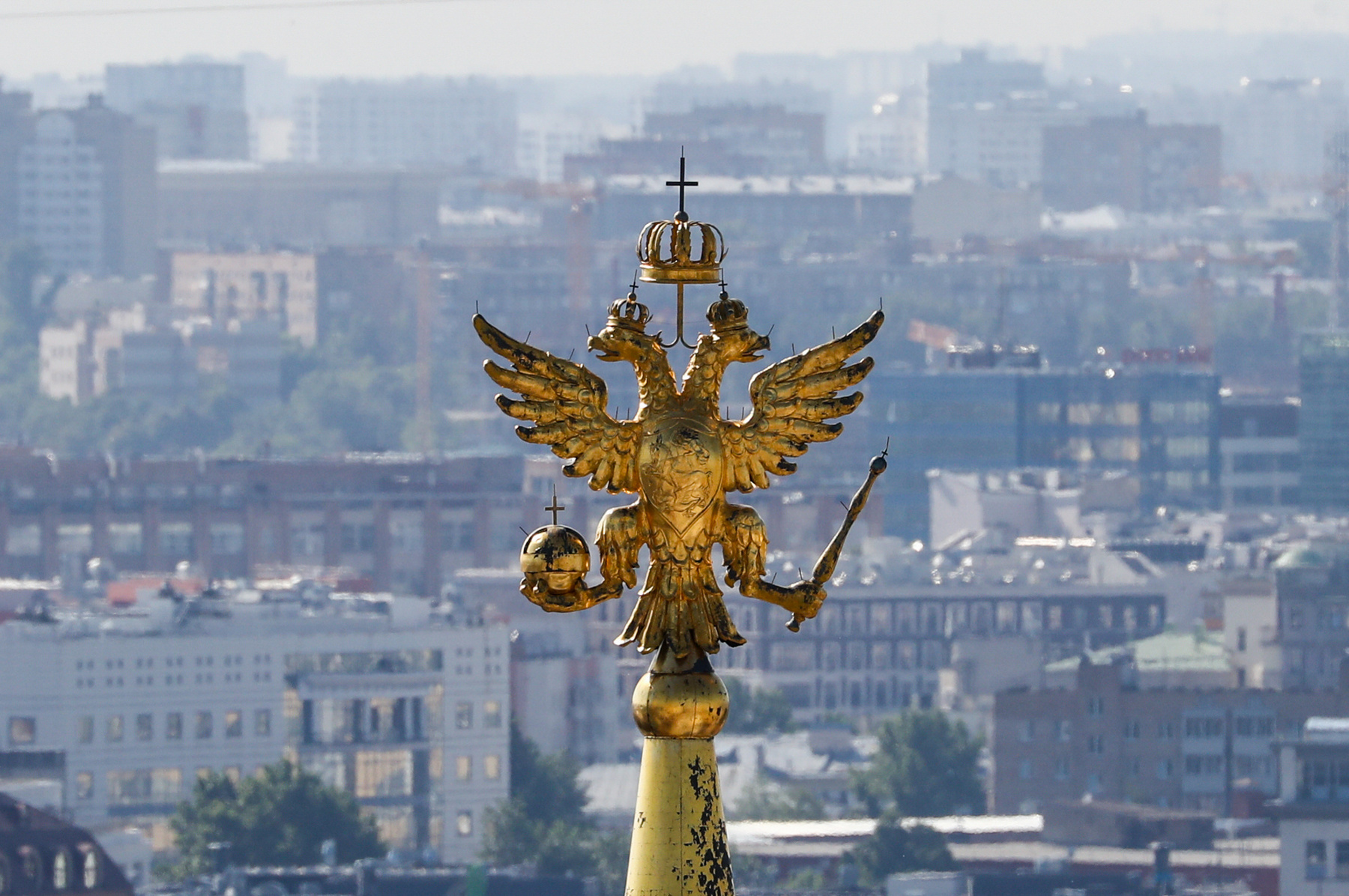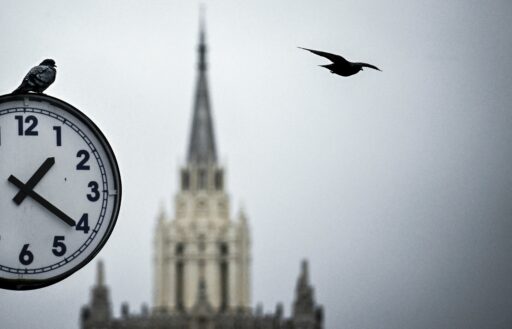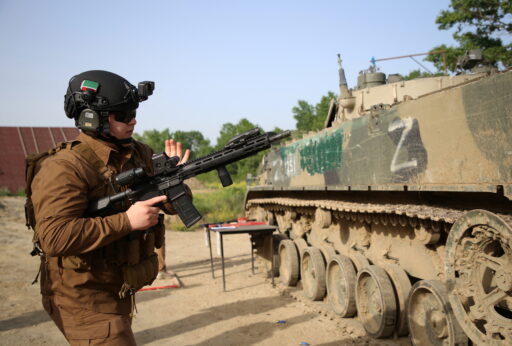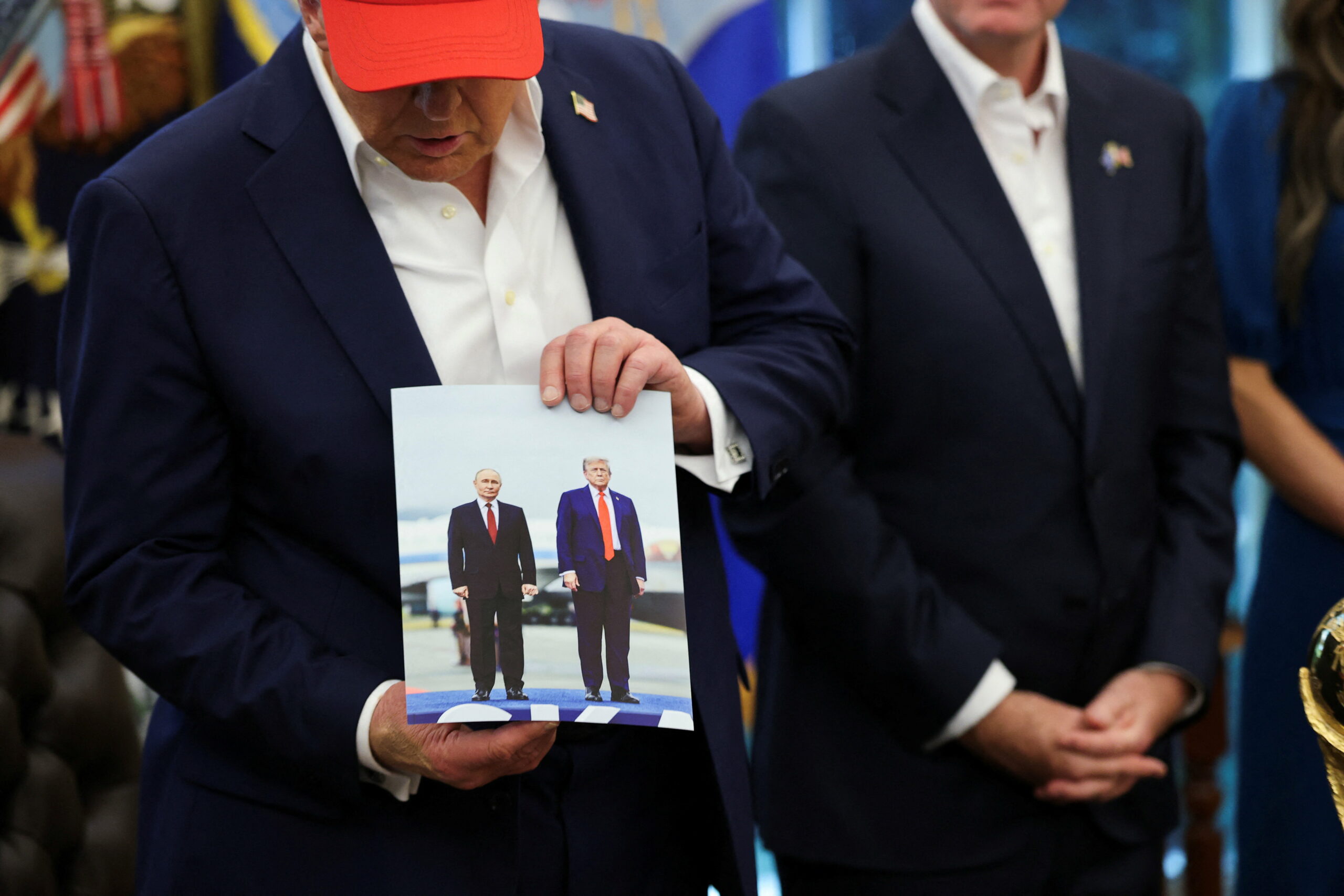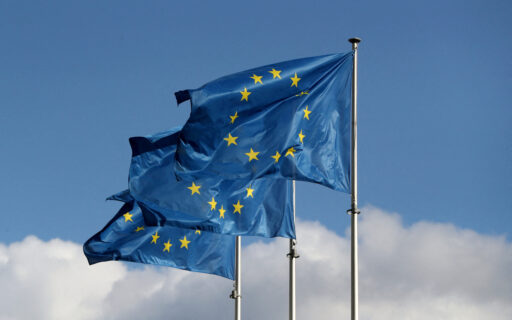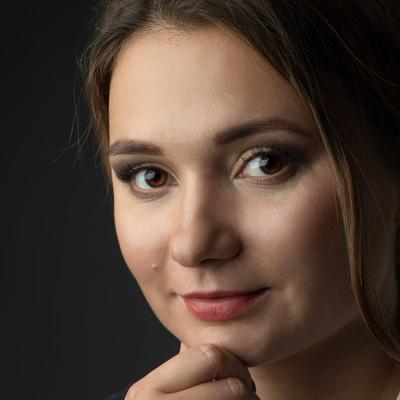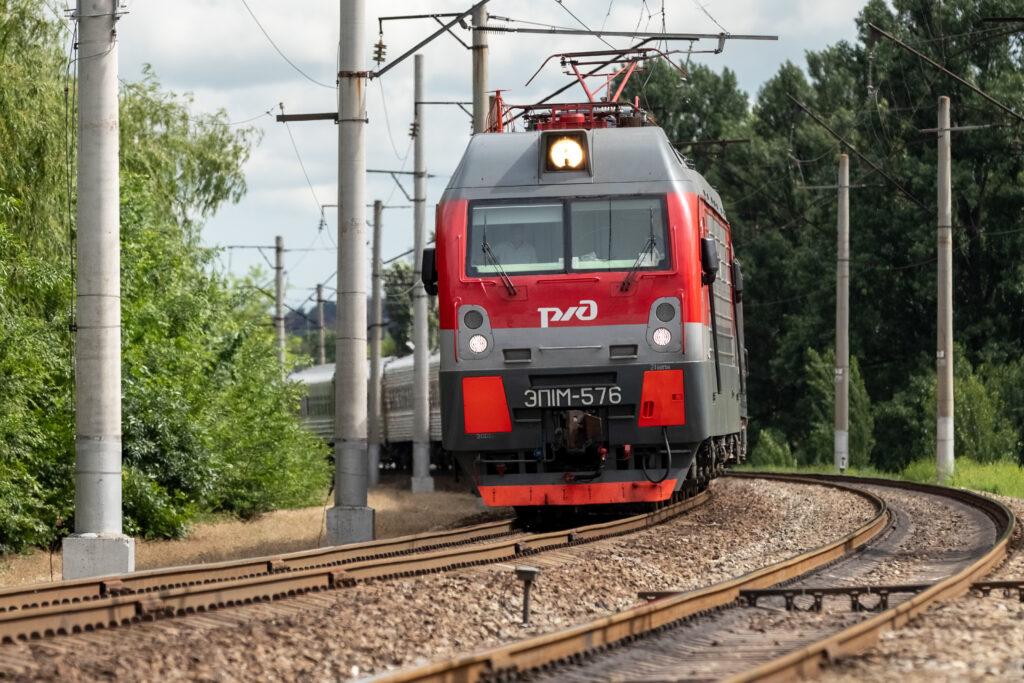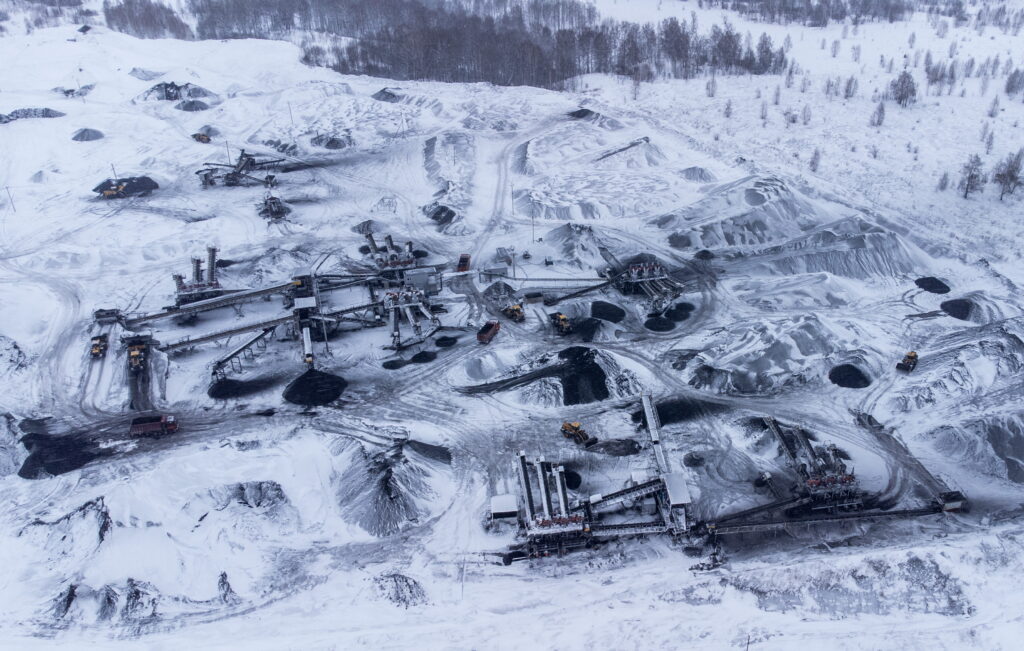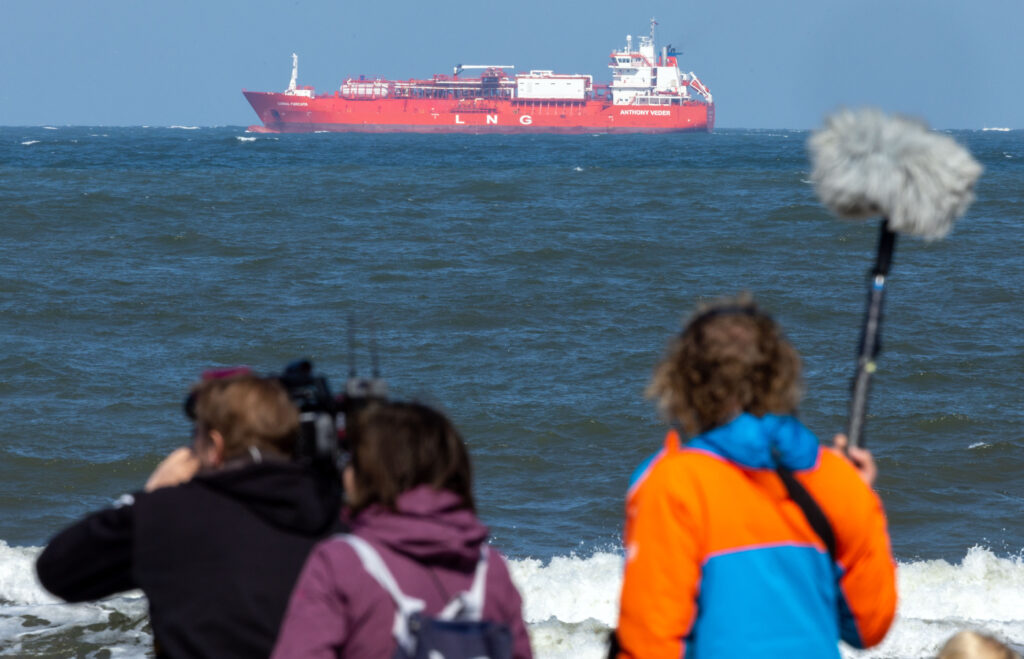«Which domestic or foreign policy event of 2021 do you think is going to determine Russia’s future? What did you find unexpected or highly interesting?» These are the questions Riddle asked to its contributors at the end of 2021.
 Stanislav Andreychuk, council member, Movement for Defence of Voters’ Rights «Golos»:
Stanislav Andreychuk, council member, Movement for Defence of Voters’ Rights «Golos»:
The main event of the year was the blocking of Smart Voting lists by IT giants: Apple and Google. I was torn apart when trying to choose among several events: from the defeat of Navalny’s supporters’ structures in Russia and his imprisonment to Yuri Dud’s films and the release of Oxxymiron’s new politicised album, alongside Morgenstern’s emigration for political reasons. But then I realised that all these topics have something in common: the growing influence of the Internet and social media on public political debate in Russia. Without them, millions would not be able to view Navalny’s videos, we would not have Dud’s films about Kolyma, torture and Beslan, or new albums from rap artists. In this context, what seems to have far greater importance is the readiness of Western IT giants to succumb to pressure from authoritarian governments and restrict freedom of speech. It was highly meaningful that this year’s Nobel Peace Prize was awarded to two journalists defending exactly this very value: freedom of speech. The most interesting event of the year has been the Glasgow Climate Change Conference. It highlights Russia’s serious turn towards an environmental agenda that is increasingly affecting its economic and socio-political processes. This could become a new topic for dialogue between Russia and the West, unencumbered by old grievances.
 Fabian Burkhardt, research Associate at the Leibniz Institute for East and Southeast European Studies (IOS), Regensburg:
Fabian Burkhardt, research Associate at the Leibniz Institute for East and Southeast European Studies (IOS), Regensburg:
In 2007, the Belarusian philosopher Valiantsin Akudovich published a series of lectures entitled «The Code of Absence» in which he lamented the absence of Belarusian national identity. But with the largest non-violent protest movement in the world in 2020, Belarus finally did see its civic national political awakening which Lukashenka, however, successfully crushed by 2021. Even though any comparison between Belarus and Russia is fraught with risks, the most apt description of Russia in 2021 would indeed be the «Year of Absence» despite 2021 being rich in events: The main opposition figure Aleksei Navalnyi was jailed, and his network crushed and forced abroad. With between 800,000 and over 1,000,000 Covid-19 excess mortality, Russia has now one of the highest pandemic death rates in the world. Draconian sentences were handed down against Ingush protest leaders, and the state liquidated the two Memorial organizations that have been symbols of Russian civil society in the past 30 years like no others. At the September Duma elections, United Russia secured its constitutional majority while evidence of unprecedented fraud is ample. New bills on «public power» and local self-government fleshing out the 2020 constitutional changes are set to wipe out the remaining autonomy of regions and municipalities. With the troop build-up at the Russian-Ukrainian border, the risks of a full-scale war are high.
But the main characteristic of 2021 is precisely the absence of any substantial collective action to prevent or at least mitigate any of these events: among the elite, civil society, regions, cities, or the population at large. Yet the question remains: How should we decipher this Russian «Code of Absence»? In my view, it was OVD-Info’s Grigorii Okhotin who came up with the most apt metaphor: Russian politics is not like the stock market with ups and downs, but rather like a peat fire: flames are constantly glimmering below thick layers of peat and soil. A fire will necessarily emerge from these flames. It will be unexpected, but strong, and raging. The ostensible absence of 2021 will suddenly turn into substantive political action.
 Nikolay Epplée, cultural historian:
Nikolay Epplée, cultural historian:
The most important event of the year in Russia was Navalny’s return from Germany or, more precisely, its implications for Russian public politics. Purely formally, it was after Navalny’s return that the official policy toward any kind of dissent shifted from attempts to create a semblance of a balance between different positions towards a position of terror and repression. Was the failed attempt to poison Navalny, his investigation of that attempt, and his subsequent return the reason behind this thread-stripping or just a trigger? This question has no simple or short answers. And yet Navalny’s return remains the most important event of the year, even if we disregard its immediate or indirect consequences. It is a political and human act of a unique scale, not only for Russian politics but also for the international arena. Another point of interest is that the political (pragmatic) and the human aspects are not contradictory in this case. In fact, they mutually support and reinforce each other. By staying in exile, Navalny would have devalued his status as the internationally recognised leader of the Russian opposition. By returning to Russia, Navalny either faced some form of confrontation with Putin or prison, becoming the world’s political prisoner number one, thereby elevating his status. This is an extremely powerful move from both the human and moral point of view. For Navalny, going back to Russia meant putting himself in a position of weakness in all senses other than moral. By deciding to take that step, he turned himself into a purely moral actor, challenging his opponents to come to a field where he was certainly stronger, bringing a heroic or even religious perspective to Russian politics for the first time in many years.
 Sergey Glandin, special Adviser on Sanctions Law at Pen & Paper:
Sergey Glandin, special Adviser on Sanctions Law at Pen & Paper:
The main event of the year is that the courts started to apply Articles 248.1 and 248.2 of the Code of Commercial Procedure, introduced by the «Lugovoi law» in June 2020. Article 248.1 gives Russian individuals covered by the sanctions the right to bring their economic disputes to Russian commercial courts whereas Article 248.2 allows them to prohibit their foreign opponents from initiating or continuing litigation abroad. No such law exists in any other country in the world. The provisions were introduced in order to protect Russian businesses under sanctions from difficulties in accessing justice in the West. However, nobody hurried to take advantage of it. On the other hand, the new rules have led to trivial misuse, and many usual rules of international jurisdiction of disputes were overridden. For example, Sovfracht, a company under U.S. sanctions, will be tried in the Moscow Commercial Court against two Indian citizens who are not sole traders. The dispute concerns immovable property located in India. However, India has not imposed any sanctions against Sovfracht. After winning the case in the Russian court, Sovfracht will not be able to have the judgment recognised and enforced in India. Nevertheless, a precedent will be created. Based on the rule of reciprocity, first the Indian courts and then other foreign courts will, in the medium term, start charging Russian businesses for any losses in cases that have nothing to do with these countries.
 Max Hess, fellow at the Foreign Policy Research Institute:
Max Hess, fellow at the Foreign Policy Research Institute:
The re-emergence of natural gas as a tool of geopolitical pressure has been a defining feature of Russia’s foreign policy in 2021. A false sense of security regarding gas markets had taken hold in the West in recent years, lulled by the 2017 and 2018 arbitration rulings on its ‘take and pay’ and transit contracts with Ukraine’s Natfohaz and Gazprom’s 2018 acceptance of the European Commission’s proposals to remove contractual barriers to the free flow of gas between EU members. Nowhere has the dichotomy between the West’s naivete and Russia’s shrewd understanding of gas markets been more clear than the July US-German Joint Statement on Nord Stream 2, which saw the Biden Administration withdraw its already-meek threats to sanction Gazprom’s new pipeline. As gas prices have since hit record highs, driving Gazprom to record profits, Moscow has deflected any blame for gas shortages by noting it is filling its contractual obligations and is not required to alleviate pricing challenges driven in large part by global market dynamics. This is true. But the Nord Stream 2 concessions will drive a wedge between EU gas markets, bifurcating supply and political ramifications between the bloc’s members. Meanwhile the commitments in support of Ukraine made in the US-German Joint Statement by Berlin and Washington are laughably small, undefined or unenforceable, often all three, enabling Russia’s renewed aggressive posture. The defining event in Russia’s foreign policy in 2021 was this Western own goal.
 Vladislav Inozemtsev, director, Centre for Post-Industrial Studies:
Vladislav Inozemtsev, director, Centre for Post-Industrial Studies:
As regards the most important event that will determine the future of Russia, I would say it is the defeat of Navalny’s structures and his incarceration. Regardless of how we view Navalny as an oppositionist, things that happened can only be interpreted as the regime declaring its readiness to view any political activity (including one that is constitutional and essentially peaceful) as extremism and high treason. The trend to march in this direction has been evident for a long time, but its «legalisation» deserves to be called the main event of the year, determining the vector of future developments. The situation around Belarus was the most unexpected event of the year for me: from the landing of the Ryanair plane in Minsk and subsequent sanctions up to the endorsement of cooperation programmes between Russia and Belarus as part of their further integration. On this front, serious and fairly unpredictable developments are possible in the near future. Admittedly, I used to believe that the unification of the two countries, actively discussed in 2019, was removed from the agenda following the adoption of the new Constitution, which consolidated Putin’s eternal status as president and eliminated the need for complicated schemes to legitimise the extension of his term in power.
 Michael Kofman, director of the Russia Studies Program at the CNA Corporation:
Michael Kofman, director of the Russia Studies Program at the CNA Corporation:
Russia’s current attempt at coercive diplomacy, leveraging a substantial military buildup aimed at Ukraine to make sweeping demands from the United States (and European allies), is arguably the defining foreign policy event of the year. This gambit is not just an attempt to break through the deadlock over Minsk II, and compel a change in Ukrainian policy, but equally to attain assurances that NATO won’t expand to Ukraine, and will restrict future defense engagement. Yet the dispute is ultimately over the post-Cold War settlement, Russia’s position in Europe, and the question of how security outcomes are determined on the continent. Moscow seeks to bargain its way into a new condominium, but it is asking for guarantees that the U.S. simply cannot give. The situation is such that Russia cannot back down without a political defeat, cannot wait indefinitely because of practical military considerations, and is unlikely to attain anything commensurate with its demands. The outlook is pessimistic, with war potentially on the horizon for 2022.
 Ivan Kurilla, professor of History and International Relations, European University at St. Petersburg:
Ivan Kurilla, professor of History and International Relations, European University at St. Petersburg:
The main event of the outgoing year in Russia was the arrest of Alexei Navalny. It was followed by mass protests and the crushing of opposition infrastructure, as well as by the persecution of activists, many of whom became the subject of criminal investigation or decided to emigrate. It became clear that the ruling group had crossed some important threshold vis-à-vis the society, and the attack on Memorial at the end of the year became the symbol of this crossing. In Russian-American relations, Biden’s meeting with Putin in June marked a low‑point freeze in Russian-American relations: no improvement can be seen, but further escalation of tensions has been halted. According to preliminary data, 2021 will be a record year for Russia in terms of excess deaths caused by COVID-19. The failure of the state structures to curb the scale of the disaster is another event of the year. However, let us try and find some reasons for optimism as well. Let us look, for example, at the Nobel Prize awarded to Dmitry Muratov and several important speeches given by intellectuals. Nevertheless, 2021 will go down in history as part of yet another «reactionary period.»
 Pavel Luzin, expert on the Russian Armed Forces:
Pavel Luzin, expert on the Russian Armed Forces:
Looking at the outgoing year, it is difficult to single out one most significant event, even in the rather narrow sphere of foreign and defence policy. Throughout 2021, we have seen that Russia began to use military leverage with ease to back up its diplomacy, having realised that it worked well. Let us recall not only the concentration of troops on the western borders in the spring and late autumn, but also the peripheral yet significant issue of Russian mercenaries in Mali. The large-scale diplomacy of military exercises with Asian and African countries is designed to counterbalance the imbalances in Russia’s relations with the West and, more importantly, with China. And all this is not about some fleeting movements, but a long-term policy line. In the harsh statements or even threats coming from the Kremlin about a possible NATO enlargement, we all see a purely Ukrainian vector of Russian policy. However, Moscow may be talking not only about its claims to a zone of special interests in the post-Soviet space, but also about guarantees that NATO will not expand any further. In this scenario, the problem of Donbass is reduced to a merely individual issue in the context of the situation in the European theatre. All the more interesting is that the Russian Ministry of Defence has also begun to half-whisper about political and ideological issues, which it had not attempted before, not even during the Perestroika. There have been also speculations about a «mental war» being waged against Russia, and the restoration of a wall carving with the figure of Stalin on the Officers’ House of the Central Military District. The Kremlin’s non-reaction to these statements is as important as the number of tanks along Russia’s western borders.
 Alexander Morozov, fellow at the Russian Studies Center Boris Nemtsov at Charles University:
Alexander Morozov, fellow at the Russian Studies Center Boris Nemtsov at Charles University:
The political event number one at home is the arrest of Navalny and the application of anti-extremist legislation to his Anti-Corruption Foundation’s offices. This means much more than just the smashing of a targeted social movement. In my view, it marks the first step into a new phase of Putinism, revealing the face and the long-term programme of this phase. The first phase occurred in 2000−2014, the second phrase fell on 2014−2020, while the third one began recently, with constitutional amendments. In other words, we are still at the very beginning of this new period. The main foreign policy event is the collapse of the Normandy Format. It occurred at the beginning of the year, multiplied by the consequences of the Belarus crisis and the provocation involving migrants, which led to an acute escalation towards the end of the year, with the consequences still unclear. Globally, the most unexpected event of the year, i.e. the one that has caused much reflection, was the storming of the Capitol. In domestic politics, Gennady Timchenko’s recent court appearance on behalf of the «Night Hockey League» is a notable event. We did know the league was running Russia, but did not expect it to «take the floor» as a public speaker.
 Sergey Radchenko, director of Research, School of Law & Politics, Cardiff University:
Sergey Radchenko, director of Research, School of Law & Politics, Cardiff University:
The most important event of 2021 is, of course, the Russian authorities’ decision to send Alexei Navalny to jail. This has become a dividing line between the dismal authoritarianism that sometimes fuelled illusions that «someday everything will be all right,» and the dismal authoritarianism that no longer gives rise to such hopes. Let us recall poet Georgy Ivanov and his immortal words: «So black and so lifeless / That one cannot be deader / And nothing can be blacker / That no one is there to help us / And nothing needs to be done.» By the way, after Ivanov wrote these lines (in 1930), everything became much blacker and deader, and, as one joke goes, only pessimists believe the situation cannot get any worse. Optimists, on the other hand, look to the future with confidence: it can and it will! But no matter how things develop, I am sure that looking back in ten or twenty years one will be able to say: we were at crossroads back then and we chose a wrong way once again.
 Andrei Semenov, senior Researcher, Center for Comparative History and Politics:
Andrei Semenov, senior Researcher, Center for Comparative History and Politics:
From my perspective, the key event has been the expanded application of the legislation on the so-called «foreign agents» and the mass inclusion of independent media outlets and NGOs in the foreign agents register. According to OVD-Info (this organisation was included in the register this year, getting the cumbersome status of «public association operating without acquiring the rights of a legal entity and performing the functions of a foreign agent»), there are currently 67 natural persons listed as foreign agents. The new list marks a shift of focus towards individuals: the regime’s strategy in the past was to contain the political opposition by exercising organisational control while personal persecution was reserved for the most serious opponents (for example, Alexei Navalny). This approach changed in 2021. At present, any employee of a media outlet or an NGO can be labelled a foreign agent, even if the organisation does not exist from the legal point of view. The boundary between the public and the private, and between the legal regimes governing these two areas, has been erased. This transition has an important symbolic meaning for the country’s civil and political life: it is one thing to dismantle an organisation on dubious grounds and quite another thing to scrutinise every public step taken by citizens who cannot get rid of their foreign agent status. Since the Ministry of Justice is consistent in adding new individuals to the list, we will likely see its expansion in the future.
 Kirill Shamiev, junior Research Fellow at Center for Comparative Governance Studies, HSE:
Kirill Shamiev, junior Research Fellow at Center for Comparative Governance Studies, HSE:
For me, the main political outcome of 2021 was the complete consolidation of the Russian regime and a new escalation in Russian foreign policy. Within one year, the Kremlin has managed to change the political rules in the country, clearly fearing mass discontent among the citizens, frustrated because of economic failures, and criticism from the elites about its deadlocked foreign policy. Currently, traditional ways of expressing discontent no longer work in Russia. It will be interesting to see how the opposition responds to the structural change in political opportunities in the country. In 2021, I was curious to watch how the new Prime Minister collaborated with the Audit Chamber, which spurred the digital transition and new experimental approaches in public administration. The Ministry of Defence also understands the importance of digital technologies and is trying to modernise its systems. However, all changes so far have been fragmentary, without addressing the structural, political underpinnings of «poor governance» in Russia. Undeniably, the good news is that we can see a gradual emergence of a group of people who have relatively up-to-date knowledge of governance and reforms. In foreign policy, we are on the verge of a full-scale regional war with Ukraine. If a military campaign is launched, it is likely to be similar to Desert Storm 2.0: a tilting, massive campaign against the enemy’s military and political objectives. Judging by publicly available data, the Russian Armed Forces are now capable of carrying out such a task. This might result in tens of thousands of new casualties, serious damage to the Russian economy and an even more repressive regime. One can only hope that the countries can arrive at a minimum common denominator that suits the Western countries, Ukraine, as well as the Kremlin, as the latter needs to demonstrate to its key elites that it is capable of solving foreign policy problems.
 Gulnaz Sharafutdinova, Professor at King’s College London: It is impossible to pinpoint a single event of 2021 that would determine the future of Russia. Rather, there were several milestones that deepened the political divides inside and outside Russia and revealed the vector of political development for the near future. The divides within Russia aggravated with the return of Alexei Navalny to Russia and the authorities’ decision to send him to jail. Further harassment of his team and other repression against opposition-minded Russians, as well as the authorities’ attack on International Memorial have sent a message to society that the authorities will not tolerate alternative views or uncontrolled political and social movements. The increasingly repressive system coincides with the return of war themes in the context of Russia’s relations with the West. Putin and Biden’s talks in 2021, which quickly shifted focus from information wars and cyber attacks (in June in Geneva) to military action on the border with Ukraine (7 December), confirm the Russian leaders’ reliance on external conflict and internal repression to maintain the status quo at home.
Gulnaz Sharafutdinova, Professor at King’s College London: It is impossible to pinpoint a single event of 2021 that would determine the future of Russia. Rather, there were several milestones that deepened the political divides inside and outside Russia and revealed the vector of political development for the near future. The divides within Russia aggravated with the return of Alexei Navalny to Russia and the authorities’ decision to send him to jail. Further harassment of his team and other repression against opposition-minded Russians, as well as the authorities’ attack on International Memorial have sent a message to society that the authorities will not tolerate alternative views or uncontrolled political and social movements. The increasingly repressive system coincides with the return of war themes in the context of Russia’s relations with the West. Putin and Biden’s talks in 2021, which quickly shifted focus from information wars and cyber attacks (in June in Geneva) to military action on the border with Ukraine (7 December), confirm the Russian leaders’ reliance on external conflict and internal repression to maintain the status quo at home.
 Anton Shekhovtsov, head of the Centre for Democratic Integrity (Austria):
Anton Shekhovtsov, head of the Centre for Democratic Integrity (Austria):
In 2021, it became obvious that Putin’s regime opted for harsher methods of influence on its Western partners in foreign policy confrontation with the West. In fact, the Kremlin had previously used instruments of hard power in its relations with the West, but tried to combine them with less conflict-oriented levers, such as «soft power» or the promotion of narratives that Russia’s actions in foreign policy do not go beyond things that are considered acceptable by the West, even if they appear confrontational. In 2021, this approach was reconsidered, with some preconditions visible even earlier. For example, the Paris branch of the Institute for Democracy and Cooperation, originally set up as an instrument of Russian soft power in France, was closed down in 2018. Recent years saw the shrinking work of Rossotrudnichestvo, another lever of restrained Russian influence in the West. The Dialogue of Civilisations Research Institute in Berlin effectively ceased operations in 2021. The coronavirus pandemic and—as in the case of Rossotrudnichestvo—the authorities’ failure to update the outdated working mechanisms have also contributed to the decline of Russian soft power in the West. However, the main reason lies in the growing toxicity of relations with Russia, based on the aggressive behaviour exhibited by the Putin regime both inside and outside the country. Both the soft power and other relatively non-contentious instruments of influence have simply ceased to be effective. In relations with the West, the Putin regime has been caught in a spiral of virulence: the more aggressive the Kremlin’s steps were to achieve its goals, the less effective the soft power became, and the more aggressive the methods applied by the regime. In 2021, «hard power» finally gained the upper hand in relations with the West. The Kremlin no longer hides Russian soldiers in nesting dolls. Instead, it flaunts them. The outgoing year has shown that this approach is quite successful. It remains to be seen whether this success will have a short- or a long term nature, but that will depend on the West.
 Tatiana Stanovaya, founder / CEO at R. Politik:
Tatiana Stanovaya, founder / CEO at R. Politik:
What I see as a potentially fateful event was the first meeting between Putin and Biden in Geneva in the summer of 2021. The meeting itself did not (and could not) bring any tangible results, but it laid the foundation for a new quality of dialogue between Russia and the United States. For the first time in three decades, Moscow can hope that its concerns about the post-Cold War world order will finally be heard, or more. I am not afraid to say that attempts to prevent NATO’s eastward expansion have perhaps become the core of Putin’s presidency. Nearly all serious geopolitical conflicts that Russia got involved in have been linked to this risk, perceived by Putin as a threat to the existence of the Russian nation and the Russian state. The most recent virtual meeting between the two presidents has shown that the talk of security guarantees is beginning to take shape, and non-expansion of NATO is one of the key points of such guarantees. The outcome of this conversation will also determine how Putin’s regime develops, how the transition of power takes place and which trends will ultimately prevail. It will also determine Russia’s place on the global stage: either further degradation and isolation combined with threats of military clashes, or reduced tension and dialogue. We can only hope that common sense on both sides will help to avoid the worst.
 Ivan Tkachev, economics Editor at RBC:
Ivan Tkachev, economics Editor at RBC:
The term «foreign agent» was introduced into Russian law in 2012, whereas in 2021 the authorities used the Ministry of Justice to unleash its full force against rebellious journalists and human rights defenders. In 2021, a total of 62 people were added to the register of foreign agent media. For most of them, this label means that they have to mark each public message with a 24-word tag, but also submit personal statements of income and expense under the pain of fines and criminal liability. This campaign of intimidation against independent journalists has completely changed the formal and informal milieu for the Russian media. At the same time, no one is immune from this status because any financial transfer from abroad can become a reason for inclusion in the register of foreign agents. A landmark event in the economic sphere was Russia’s final and irrevocable recognition of the global climate agenda at the state level. A few years ago Putin expressed doubts about the anthropogenic origin of climate change, but in 2021 he declared the goal of achieving carbon neutrality by 2060, and the government adopted a long-term strategy to reduce greenhouse gas emissions and partially decarbonise the economy. Of course, this does not mean that Russia has seriously embraced the new values of a carbon-neutral world in the future. The authorities are not yet ready to follow the internationally recognised path towards the introduction of market-based emission allowances or carbon pricing. The country’s elites and the fuel and energy sector companies have largely spoken in favour of maintaining the status quo. Climate policy is not perceived as a cooperative effort towards a common goal, but as an extension of geopolitics with all its antagonisms and distrust. Also, the traditional lack of strategic thinking and a long-term vision of the future, typical of Russian elites, does not guarantee a successful green transition for the country. However, the very fact that the authorities have started to speak as a responsible and engaged participant in the international climate change agenda, and that the notion of ESG has made its way into the lexicon of most Russian companies, gives grounds for hope that «dormant» environmental institutions will sooner or later start working and that economic diversification will help to improve the overall institutional environment.
 Nick Trickett, editor-in-Chief of OGs and OFZs:
Nick Trickett, editor-in-Chief of OGs and OFZs:
What struck me most about 2021 in Russia was not what happened so much as what didn’t happen. The over-caution spending any money to provide income support, investment into capital goods, or support for businesses in the absence of federal health protocols except for targeted electioneering has not matched economic reality for much of the year. By itself, this is no surprise given past orthodoxy and the regime’s focus on foreign policy. Hoarding money makes sense in the event of more extreme sanctions. But it makes precious little sense to fight so hard for monetary sovereignty if that sovereignty doesn’t actually allow you to do anything or else very little. Stability is often the word used to describe the revealed preferences in policy choices domestically, whether that be an expansion of repressive activity, hawkish monetary policy, or an impending pullback on spending on items such as healthcare despite the fact we have every reason to believe the pandemic in Russia will continue deep into 2022 if not for the entire year. To me, however, the cumulative choices not to spend at home in various guises point to stasis and an inability to resolve questions of succession, shift the interest groups, or deviate from pathways decided since 2013. In other words, not making choices are now choices that risk much greater instability, I fear, than conventional foreign policy analyses that treat the economy or domestic politics as immaterial or of little importance might suggest.
 Mikhail Turchenko, associate Professor, Department of Political Science, European University at St. Petersburg:
Mikhail Turchenko, associate Professor, Department of Political Science, European University at St. Petersburg:
Let me focus on something that is not a single event, but a period of time from mid to late April. During that period, or slightly earlier, the final decision was taken to destroy all of Navalny’s structures and to attack the free media. On 14 April, the editors of the student magazine DOXA were detained. On 16 April, the prosecutor’s office demanded that Navalny and Anti-Corruption Foundation’s offices be declared extremist organisations and a database of his supporters’ email addresses was released online on the same day. On 23 April, the Ministry of Justice added Meduza to the register of «foreign agent media.» Since April, there has been an avalanche of news about foreign agents, fines imposed on Internet-based companies, pressure on lawyers and politicians, and lawsuits against Navalny’s structures.
 Denis Volkov, director, Levada-center:
Denis Volkov, director, Levada-center:
In my opinion, the central event of 2021 was the State Duma election, which exposed the mechanisms of power retention and also demonstrated the existing social cleavages and the accumulated demand for change. Against the backdrop of falling popularity ratings, it was no longer sufficient for the authorities to mobilise supporters, i.e. public sector employees and retirees, through persuasion, insistence or additional financial benefits. It was equally necessary to demobilise and demoralise critics — by removing the most outspoken and intransigent opposition politicians from elections, violently dispersing protesters, labelling independent media and journalists as «foreign agents.» However, even under these conditions people, who grew weary of the ruling party and its policies, found an outlet by expressing greater electoral support for the Communist Party of the Russian Federation. The CPRF attracted the most determined opponents of United Russia in these elections, and the New People party made it to the Duma by garnering the votes of moderate critics. Both of these parties attracted large numbers of votes from among young people. The electorate of United Russia, on the other hand, has aged, which only confirms that the authorities are increasingly relying on the elderly and conservative population strata, pushing young citizens ever further away.
Dmitry Markin, political scientist:
Of most interest to me in 2021 was the social turn in Putin’s rhetoric. During his long presidency, he has never been known for being sentimental. His language has always leaned towards crude jargon with phrases such as «rub them out in the outhouse» and the like. His 2021 Address presents a very different image of Putin: a concerned father of the people, of «mothers with tiny tots» and families. He reads out a long list of welfare benefits and devotes three quarters of the address to social issues. What is changing is not just the content but also the language. In the past, Putin never used such warm, humane words. Instead, he usually spoke in officialese, favouring phrases such as «citizens with children.» For example, the word «family» was used only twice in his 2015 Address, which is in stark contrast with 31 times in the 2021 Address. The word «mother» had never appeared in his addresses until 2020, when he used it four times (and three times in 2021). I wonder about the reason behind this social turn (or, as some observers call it, a leftist turn) and where it will lead to. I am not inclined to link it solely to the pandemic because the first signs of a shift in his rhetoric were noticeable even before the spread of COVID‑19. The pandemic may have merely accelerated a process which had already been set in motion. Does this mean that Putin has noted the declining loyalty of the citizens and feels that it will be difficult to hold onto power by using repressive methods alone? Or is he unsure of his entourage and wants to enlist the real support of the people, just in case? Or is it perhaps a temporary measure, which was originally intended to cushion the introduction of constitutional amendments and then protracted somewhat longer because of the pandemic? It would be interesting to find answers to these questions.
